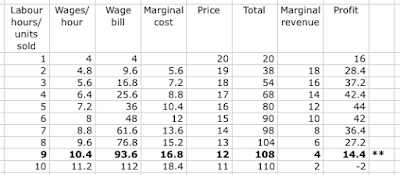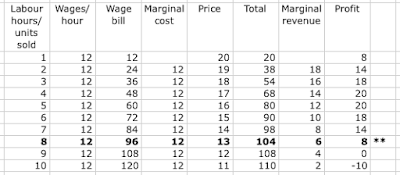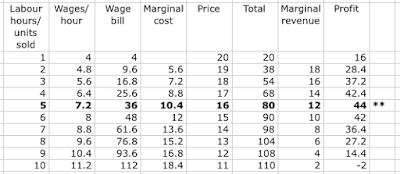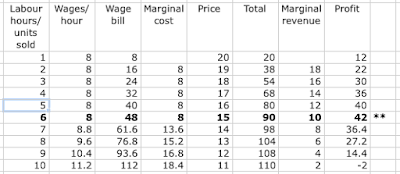Opponents (broadly, "right wingers") say that wage levels are set in a competitive market, so if the minimum wage is higher than this, this will cost jobs and reduce output. Defenders of minimum wages (broadly, "left wingers") say that it levels the playing field between exploitative employers and exploited workers and insist that any small fall in employment is a price worth paying.
Each side puts out their studies which purport to prove their theory. I'm not really convinced by either set of 'facts' as people are highly selective and tend to find what they are looking for.
(I personally am heartily indifferent about the National Minimum Wage, my view being that the best guarantee of workers' rights is a growing economy and full employment - i.e. get rid of VAT and supertaxes on employment income such as National Insurance Contributions. We can back this up with a Citizen's Income, which strengthens the bargaining position of potential workers slightly, especially when it comes to low-wage jobs.)
I have recently stumbled across a theory that says, evidence shows that the negative impact on employment and output was not only nowhere as bad as the doom-sayers predicted, but that in some situations, imposing a minimum wage can actually increase employment and output.
Sounds very counter-intuitive, but actually it makes sense. This is because most businesses have some monopoly/monopsony power (they are two sides of the same coin). I am perfectly aware that no business knows exactly what its marginal costs per unit are, let alone what its marginal revenue per unit it, and that most businesses do some sales at a loss, whether by accident (budget overrun or customer doesn't pay) or by design (loss leaders). Nonetheless, businesses must have some collective intuitive grasp of this or they'd all be bankrupt.
Let's start at the very beginning with a business in a perfectly competitive market where labor is the only variable cost with a given supply curve and a given demand curve, the level of output of the business in question would be 9 units, wages £10.40 and selling price £11, being the highest level of output before the business tips into losses:

The columns for marginal cost and revenue are the total cost/revenue at that level of output, minus the total cost/revenue if one unit less were produced and sold. The relevance of this will be explained further down.
So if a minimum wage of £12 is imposed, the business has to reduce output to 8 units, wages £12 and selling price £13, being the highest level of output before the business tips into losses. This is what the opponents predict:

As we well know, most businesses have some monopoly power (can restrict supply) and, especially if there is permanent un- or under-employment, a stronger bargaining position than potential employees, which we shall consider monopsony power for the purposes of this debate.
Such businesses (or industries) do not end up setting prices at just above costs, which is the optimum position for the economy as a whole. They choose the level of output which maximises profits, and you can't fault them for that. Some interpret this to mean that businesses (should) set output at the level at which any further increase in output means that marginal costs would exceed marginal revenue.

So this business restricts output and employment to 5 units sold for £16 each, total profits £44, wages of £7.20 per hour. There's no point going to 6 units - marginal costs £12 exceed marginal revenue £10 and profits would fall.
What happens if the minimum wage is set at £8 per hour? While average wages go up, the marginal cost goes down to a flat £8 for the first six units of labor. The new profit-maximising level of output is now 6 units sold for £15 each, total profits £42, wages of £8 per hour.
Higher wages, more jobs, more output, lower prices and monopoly profits (rent) shaved back a bit. What's not to like?

Yes, I know this is all hypothetical, but there are simply too many studies showing that there is no measurable negative impact of minimum wages on employment levels to simply be dismissed out of hand, however biased the authors. So I think that there is something in it, however difficult it is to explain.
Or maybe both sides (left wingers and right ringers) are half-right and the extra jobs in monopoly businesses cancel out (or outweigh) job losses in competitive businesses. This would still be a good thing, if those competitive businesses are only competitive because wages are depressed.
